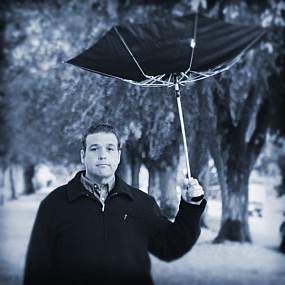 I don’t think a stranger tradition exists in evangelical churches than the use of spiritual gift inventories. Churches hand constituents a booklet on the gifts of the Spirit and task them with selecting (based on a set of questions in the booklet linked to specific personality traits) the spiritual gifts they possess. The only thing stranger is letting people self-identify their personal spiritual gifts WITHOUT a booklet.
I don’t think a stranger tradition exists in evangelical churches than the use of spiritual gift inventories. Churches hand constituents a booklet on the gifts of the Spirit and task them with selecting (based on a set of questions in the booklet linked to specific personality traits) the spiritual gifts they possess. The only thing stranger is letting people self-identify their personal spiritual gifts WITHOUT a booklet.
So much for leaders mentoring their charges in a way that helps them discover their gifts.
What mystifies me is that all of the popular spiritual gift inventories that I have encountered in my life include the charismatic gifts that bother a large number of Christians. I wonder what happens when Joe Average, a relatively new believer and new member of the church, fills out his spiritual gift inventory and discovers that his gifts are as a prophet and a healer.
I know what happens in most churches: Joe’s prophetic gift is treated by leaders as “well, Joe, about that gift…,” while the healing gift relegates Joe to visitation ministries, where he’s supposed to make chit-chat with shut-ins and the “lightly” hospitalized.
What pastor really wants any of his people to score that spiritual gift inventory and come up with a prophetic gift high on the results? Prophetic gifts in most churches get forced into being considered good for one of the following three uses: only preaching, only nice “crystal ball readings” to reassure people, or for no good use at all.
Does Pastor Bob want Joe Average to use his prophetic gift to supplant him in the pulpit? Must I even ask that question?
Does Pastor Bob want Joe Average doing anything “weird,” like forecasting people’s futures or warning the church of its errors? (Even if the forecasts are for sunshine and blue skies only? Even if the warnings are more like Hallmark greeting card text? Or especially because of those possible outcomes?)
And then there are words of knowledge and words of wisdom. Even the gift of faith gives some leaders the willies when they think how their people might consider its use.
It seems like half the list of spiritual gifts is a minefield, and it may be why some church leaders look at spiritual gift inventories as a necessary evil. (Unless, of course, everyone has the pastor’s favorite gift: administration.)
Given how poorly we deal with spiritual gifts, if we deal with them at all, is it any wonder the typical modern evangelical church shambles along in its mission like some B-movie monster?
Want a church that uses spiritual gifts properly?
1. Everyone, stop with the fear—and the discrediting of the Lord. When churches and their leaders descend into fear over gifts, they discredit the Lord. Who is the giver of gifts? How can we NOT believe The Lord knows best what our church needs? If Joe Average has a prophetic gift or a healing gift, consider yourselves blessed, and let Joe—with wise counsel—use his gift! If you do, it’s guaranteed that God will do more in your church, and not less, because of Joe’s Spirit-endowed contribution. Trust God, folks!
2. Leaders, stop the vanity. If you don’t see yourselves as replaceable, then you’ve made yourselves royalty, and that’s not how the Bible teaches you should lead. Enable the gifts in your people; don’t stymie them because they seem a threat to the perfect church kingdom you’ve erected. “He must increase and I must decrease” may apply not only to your relationship with Christ, but also to your standing among your brothers and sisters in Christ in your church. Don’t be the cork in the bottle of what God wants to do in your midst because you lack the humility to let others do what God can do through them. As someone wise once noted in Acts, when you constantly rein-in your people, you just may find yourself opposing the work of God.
3. Nonleaders, stop the vanity. Nothing ruins a church faster than people who desperately want to be seen as possessing a particular gift yet who in no way offer evidence of its God-driven operation in their lives. The number of unqualified—yet self-proclaimed—teachers I’ve witnessed “teaching” in churches could fill a stadium. And no one does more damage than a proud, deluded dispenser of words of knowledge or prophecy. Leaders are partially responsible for creating these disastrous disciples, which means they need to reboot their gift ID process, so…
4. Leaders, get rid of the spiritual gift inventories and identify gifts God’s way. Paul drew alongside Timothy and helped his charge grow into his giftings. He didn’t hand Timothy a spiritual gift inventory booklet and tell him, “Have at it!” No, Paul worked with the young man and mentored him in such a way that Timothy knew what his gifts were because Paul affirmed them. Leaders, I believe your number one task is to personally commit to helping each person in your church not only identify his or her spiritual gifts, but also…
5. Leaders, fan the flames of your people’s gifts. Read #2 above. Once you’ve gotten out of the way and done your own personal gut check about your motivations, enable the gifts in your people. There NEVER should be an environment in a church where there is no room for this gift or that. Don’t step on the embers, leaders, but do all you can to make them into a roaring fire.
6. Everyone, use the gifts or lose them. I can’t point to a verse that claims specifically that unused spiritual gifts will vanish, but the parable of the talents sure seems to validate that idea. Wonder why your church limps along? Perhaps you’ve squandered your gifts. Perhaps repentance and wailing before the throne will get them back. Or perhaps not. The warning is not to diss those gifts in the first place. Just don’t go there.
7. Everyone, rejoice. The gifts are given for the edification of the Church and for the completion of the mission tasked to us by the Lord. Eagerly pursue the gifts and rejoice in their use. Or to quote a song, “Forget your troubles, come on get happy.” Nothing beats a smiling, grateful countenance on someone employing a spiritual gift for the benefit of the Body of Christ. That’s real church, and it’s exactly how each of us should function as part of that Body.


 No one else is needed to listen to that leading and help make sense of it. We’re Americans, so why should we need anyone else’s help to understand how to live our lives according to the leading of he Spirit?
No one else is needed to listen to that leading and help make sense of it. We’re Americans, so why should we need anyone else’s help to understand how to live our lives according to the leading of he Spirit?